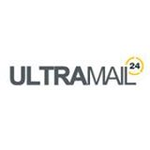Description

DeBounce

UltraMail24
Comprehensive Overview: DeBounce vs UltraMail24
DeBounce and UltraMail24 are both solutions that operate in the email management and marketing space, providing various services to different target markets. Here's a comprehensive overview of each, along with a comparison:
a) Primary Functions and Target Markets
DeBounce:
-
Primary Functions: DeBounce is primarily an email validation and verification service. It offers features such as email list cleaning, email verification in bulk, and real-time email verification via an API. These functions help businesses ensure their email lists are clean, valid, and up-to-date, reducing bounce rates and improving email deliverability.
-
Target Markets: DeBounce targets businesses and organizations of all sizes that engage in email marketing and need to maintain healthy email lists. It is particularly beneficial for large marketers, enterprises, and digital agencies that handle extensive email databases.
UltraMail24:
-
Primary Functions: UltraMail24 is a multi-functional email marketing platform that goes beyond email verification to include design tools, campaign management, and analytical reporting. It focuses on enabling users to create, send, and track email marketing campaigns effectively.
-
Target Markets: UltraMail24 aims to cater to small to medium-sized enterprises (SMEs), marketing agencies, and professionals who are looking for an all-in-one email marketing solution. Its broad feature set supports users who need comprehensive campaign management tools.
b) Market Share and User Base
The market share and user base information for such platforms can fluctuate and may not be precisely documented without access to proprietary data. Generally, the email marketing and verification domain is competitive, with numerous players, making exact market share sometimes less transparent.
-
DeBounce: Known for its specific expertise in email verification, DeBounce is popular among businesses prioritizing email deliverability and hygiene. Its comparative market share would rely heavily on businesses focusing on verification services alone.
-
UltraMail24: As a multi-purpose tool, UltraMail24’s user base might include smaller businesses looking for a comprehensive email marketing solution without the need for using multiple tools. Its market share would be influenced by its ability to offer integrated services against standalone functionalities.
c) Key Differentiating Factors
-
Service Scope: DeBounce specializes in email verification and is more likely to be adopted by users who need this specific service. Its focus is on the quality and accuracy of email lists, which can be more appealing to organizations heavily invested in deliverability metrics.
-
Comprehensive Capabilities: UltraMail24 differentiates itself by being a full-fledged email marketing platform. Apart from verification, it offers campaign management, design capabilities, and engagement analytics, making it suitable for more hands-on marketing activities.
-
User Experience & Interface: User experience and interface design can vary significantly, with DeBounce potentially having a more streamlined layout for verification processes, while UltraMail24 may be more feature-rich but complex due to its diverse functionality.
-
Pricing Models: Pricing could be a determining factor, with DeBounce potentially opting for usage-based models (e.g., pay-per-verification) and UltraMail24 offering tiered subscription plans based on feature access and user base size.
In summary, DeBounce is best suited for companies focusing on email list hygiene and deliverability, whereas UltraMail24 targets businesses that require a broader suite for email campaign management. The choice between the two often depends on the specific needs—whether a business prioritizes list verification or comprehensive marketing functionalities.
Contact Info

Year founded :
2018
Not Available
Not Available
India
http://www.linkedin.com/company/debounce

Year founded :
Not Available
Not Available
Not Available
Not Available
Not Available
Feature Similarity Breakdown: DeBounce, UltraMail24
To provide a feature similarity breakdown for DeBounce and UltraMail24, we need to compare them based on their primary functionalities as email verification and management tools. Here's a detailed analysis:
a) Core Features in Common
-
Email Verification:
- Both DeBounce and UltraMail24 offer email verification services that check the validity and deliverability of email addresses. This typically includes checking syntax, domain validity, and mailbox existence.
-
Bulk Email Verification:
- Both platforms provide the capability to upload and verify large lists of email addresses in batch mode, which is essential for managing large datasets.
-
API Access:
- They both offer API access, allowing integration with other software and platforms to automate the email verification process.
-
Integration Support:
- Common integrations for platforms like these include compatibility with email marketing services, CRMs, and other third-party tools, allowing users to sync their data easily.
-
Detailed Reporting:
- Detailed reports and insights about verification results are provided by both to help users understand the quality of their email lists.
-
GDPR Compliance:
- Adherence to data protection regulations such as the GDPR, ensuring user data is handled securely and legally.
b) User Interface Comparison
-
Ease of Use:
- Both platforms prioritize user-friendly interfaces, with straightforward navigation and clear instructions, making it easy for users to upload lists and view results.
-
Dashboard Design:
- While similar in functionality, the design aesthetics may differ. DeBounce often opts for a clean, minimalist design with intuitive access to features, whereas UltraMail24 might focus on providing more customizable dashboard layouts to accommodate varied user preferences.
-
Visual Feedback:
- Both services typically provide real-time feedback on the status of list processing directly through their dashboards with progress indicators and simple summary statistics.
c) Unique Features
-
DeBounce:
- Lead Finder: Apart from verification, DeBounce might offer a lead finder or data enrichment tool that helps users discover potential leads based on existing data.
- Advanced List Analysis: DeBounce may have advanced diagnostic tools for analyzing list health beyond basic verification, such as detecting patterns or anomalies in data.
-
UltraMail24:
- Enhanced Privacy Features: UltraMail24 might focus on more robust privacy and data protection features, offering additional encryption options or user anonymity.
- Geo-Targeting Verification: Unique to UltraMail24 could be the ability to verify and segment emails based on geo-targeting aspects, useful for localized marketing campaigns.
Both tools are committed to improving email deliverability by ensuring the validity of email addresses. However, which one is more suitable depends on specific needs like the desire for enhanced privacy, advanced data analysis, or additional lead generation capabilities.
Features

Not Available

Not Available
Best Fit Use Cases: DeBounce, UltraMail24
DeBounce and UltraMail24 both serve as email verification and validation tools, but they may cater to different audiences or use cases based on their unique features and offerings. Here’s a breakdown of their best fit use cases:
a) DeBounce
Types of Businesses or Projects:
- Small to Medium-Sized Enterprises (SMEs): DeBounce is particularly well-suited for small to medium-sized businesses that require cost-effective solutions for managing their email lists without the need for overly complex features.
- Marketing Agencies: Agencies that manage a large number of campaigns for various clients can benefit from DeBounce's user-friendly interface and quick batch processing capabilities.
- E-commerce Platforms: Online retailers reliant on newsletters and promotional emails for sales can use DeBounce to maintain clean lists, improve deliverability, and reduce bounce rates.
- Nonprofits and Community Organizations: These organizations often have limited budgets and can use DeBounce to ensure their communications effectively reach their audience without incurring high costs.
b) UltraMail24
Preferred Scenarios:
- Large Enterprises: UltraMail24 is typically better equipped to handle large volumes of email verifications quickly, making it ideal for larger companies with extensive email marketing efforts.
- Data-Driven Businesses: For businesses that operate heavily on data and require advanced analytics on email performance, UltraMail24 can provide more robust insights and reporting features.
- High-Frequency Campaigns: Businesses running frequent or complex email campaigns can benefit from UltraMail24’s potentially faster processing speeds and enhanced accuracy.
- Tech-Savvy Organizations: Companies with dedicated IT teams or technical marketers may appreciate any advanced integrations or API capabilities that UltraMail24 offers, allowing for more customized workflows.
d) Industry Verticals and Company Sizes
- Retail and E-commerce: Both products can serve this vertical well, with DeBounce being more suited for smaller platforms and UltraMail24 catering to larger retail chains.
- Healthcare and Insurance: Industries that require accurate communication with various stakeholders can benefit from the reliability and security features these tools provide. UltraMail24 might be preferred if handling large databases.
- Technology and SaaS: These companies, often dealing with global users and multiple subscription lists, could use either tool depending on their size, with startups favoring DeBounce and established firms leaning towards UltraMail24.
- Education and EdTech: Organizations in this sector can use these tools to manage communications to students, parents, and faculty. The size and budget of the institution will likely dictate the choice between DeBounce and UltraMail24.
Overall, the choice between DeBounce and UltraMail24 often comes down to the organization's size, budget, and specific requirements regarding email verification speed, volume, and additional features like analytics and API integrations.
Pricing

Pricing Not Available

Pricing Not Available
Metrics History
Metrics History
Comparing undefined across companies
Conclusion & Final Verdict: DeBounce vs UltraMail24
To determine which email verification service, DeBounce or UltraMail24, offers the best overall value, it is crucial to evaluate each product based on several criteria, such as pricing, features, ease of use, integration capabilities, accuracy, support, and customer feedback. Here’s the conclusion and final verdict:
a) Best Overall Value
Considering all factors, the best overall value would depend on specific user needs:
-
DeBounce is generally more praised for its user-friendly interface and extensive integration options, making it a highly versatile tool for a wide range of users, from small businesses to larger enterprises.
-
UltraMail24 might offer specific unique features that stand out, such as enhanced security measures or faster verification speeds, which could be valuable for users who prioritize these aspects.
Ultimately, DeBounce appears to offer the best overall value for most users, thanks to its balance of features, affordability, and usability.
b) Pros and Cons of Each Product
DeBounce:
-
Pros:
- User-friendly interface that facilitates easy navigation and use.
- Extensive integration options with popular platforms (e.g., WordPress, Zapier, API access).
- Competitive pricing with various plans to suit different needs.
- High accuracy in verification results, which is crucial for maintaining a healthy email list.
- Good customer support and resources.
-
Cons:
- Certain advanced features may be limited in lower-tier plans.
- Can be less effective with niche email providers.
UltraMail24:
-
Pros:
- Potentially faster processing times for bulk verifications.
- Enhanced security measures, which might be a priority for some users.
- Unique features that could cater to specific business needs or industries.
- Strong focus on data privacy and compliance.
-
Cons:
- May have a steeper learning curve for new users.
- Limited integration options compared to DeBounce.
- Pricing can be higher, especially for users requiring advanced features.
c) Recommendations for Users
For users trying to decide between DeBounce and UltraMail24, consider the following recommendations:
-
Identify Core Needs: Assess what you need most—whether it's speed, integration, user experience, or specific features. Choose the tool that best meets these primary requirements.
-
Budget Considerations: Evaluate the pricing plans and choose based on your financial capacity as well as the long-term benefits of each service.
-
Free Trials and Demos: Make use of any free trials or demos offered by these services to get firsthand experience before committing. This can help you understand which platform feels more intuitive and effective for your usage.
-
Review Customer Feedback: Look at reviews and testimonials from current users to gauge satisfaction and real-world performance.
-
Future Scalability Needs: Consider your potential growth and check whether the service can scale with your business without requiring significant changes or investments.
By analyzing these factors, users can make an informed decision that aligns more closely with their business objectives and operational needs.
Add to compare
Add similar companies



